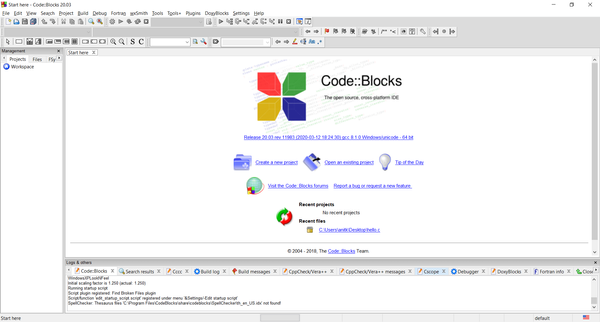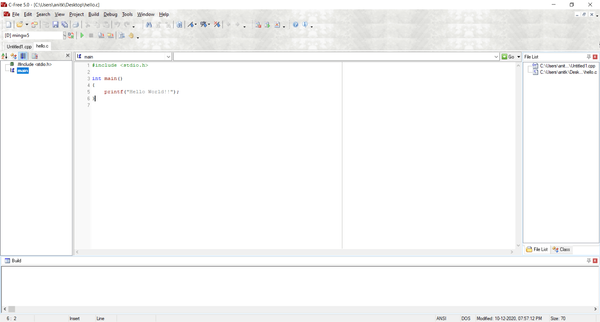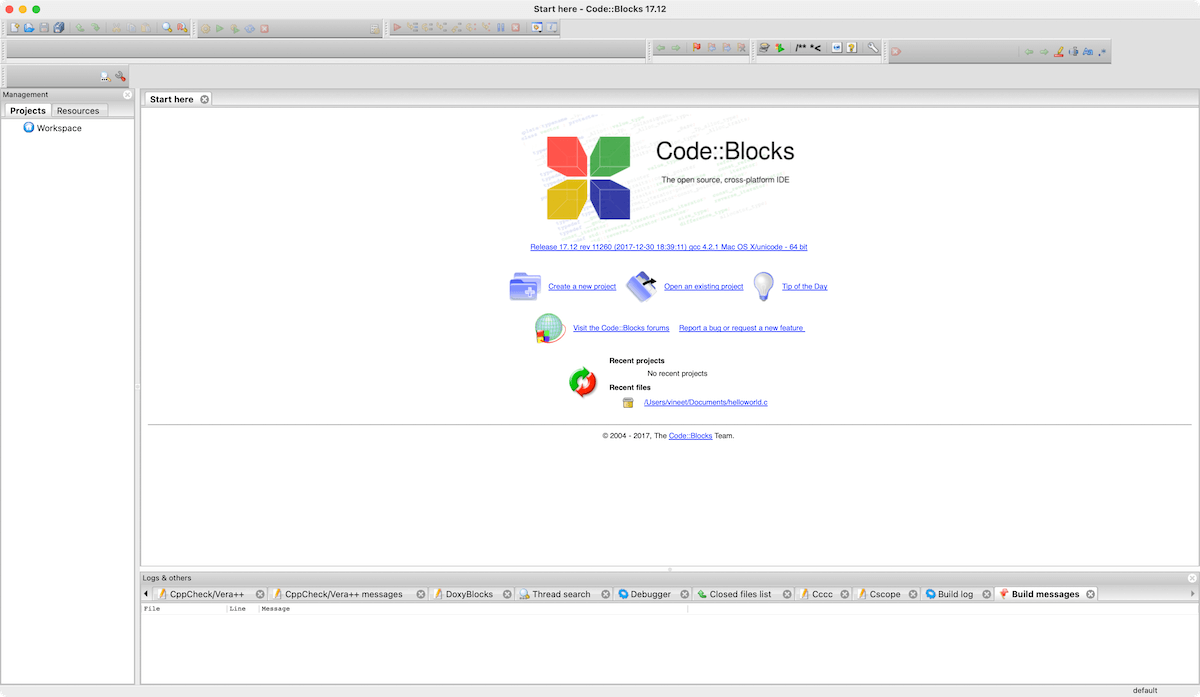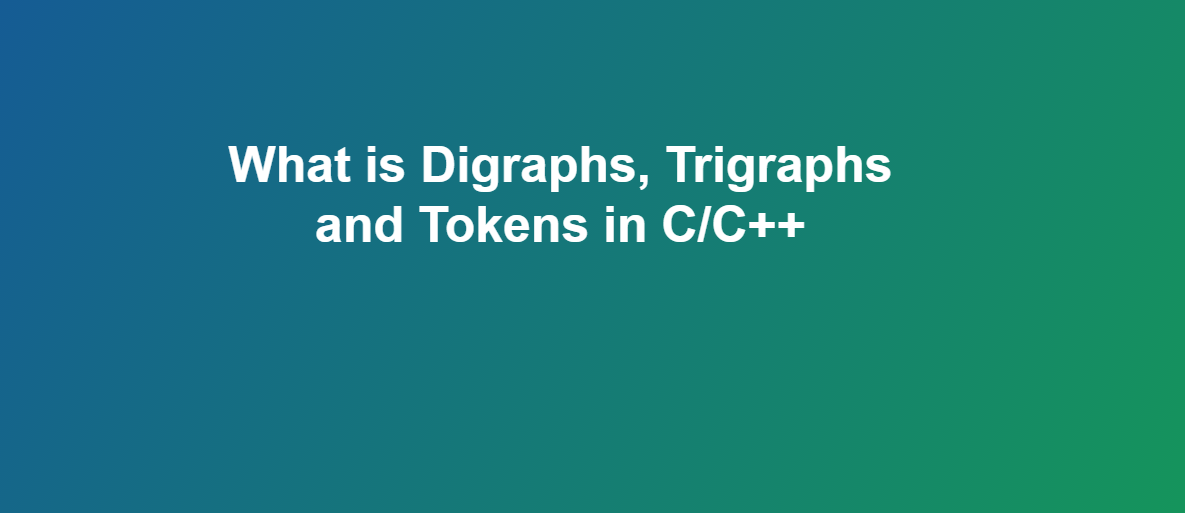1. What is a Pointer?
A pointer is a variable that contains the address of a variable. The main thing is that once you can talk about the address of a variable, you'll then be able to goto that address and retrieve the data stored in it.
2. C Pointer Syntax
Pointers require a bit of new syntax because when you have a pointer, you need the ability to both request the memory location it stores and the value stored at that memory location. Moreover, since pointers are some what special, you need to tell the compiler when you declare your pointer variable that the variable is a pointer, and tell the compiler what type of memory it points to.
The pointer declaration looks like this:
<variable_type> *<name>;
For example, you could declarea pointer that stores the address of an integer with the following syntax:
int *points_to_integer;
Notice the use of the *. This is the key to declaring a pointer; if you add it directly before the variable name, it will declare the variable to be a pointer.
3. Pointer Notation
Consider the declaration,
int i = 3;
This declaration tells the C compiler to:
- Reserve space in memory to hold the integer value.
- Associate the name
iwith this memory location. - Store the value 3 at this location.
We may represent i’s location in memory by the following memory map.

We see that the computer has selected memory location 65524 as the place to store the value 3. The location number 65524 is not a number to be relied upon, because some other time the computer may choose a different location for storing the value 3. The important point is, i’s address in memory is a number. We can print this address number through the following program:
#include<stdio.h>
main()
{
int i = 3 ;
printf("\nAddress of i = %u",&i);
printf("\nValue of i = %d",i);
}
The output of the above program would be:
Address of i = 65524
Value of i = 3
Look at the first printf() statement carefully. & used in this statement is C’s "address of" operator. The expression &i returns the address of the variable i, which in this case happens to be 65524. Since 65524 represents an address, there is no question of a sign being associated with it. Hence it is printed out using %u, which is a format specifier for printing an unsigned integer. We have been using the & operator all the time in the scanf() statement.
The other pointer operator available in C is *, called "value at address" operator. It gives the value stored at a particular address. The "value at address" operator is also called "indirection" operator.
Observe carefully the output of the following program:
#include<stdio.h>
main()
{
int i = 3 ;
printf("\nAddress of i = %u",&i);
printf("\nValueof i = %d",i);
printf("\nValue of i = %d",*(&i));
}
The output ofthe above programwould be:
Address of i = 65524
Value of i = 3
Value of i = 3
Note that printing the value of *(&i) is same as printing the value of i. The expression &i gives the address of the variable i. This address can be collected in a variable, by saying,
j = &i ;
But remember that j is not an ordinary variable like any other integer variable. It is a variable that contains the address of other variable (i in this case). Since j is a variable the compiler must provide it space in the memory. Once again, the following memory map would illustrate the contents of i and j.

As you can see, i's value is 3 and j's value is i's address. But wait, we can’t use j in a program without declaring it. And since j is a variable that contains the address of i, it is declared as,
int *j ;
This declaration tells the compiler that j will be used to store the address of an integer value. In other words j points to an integer. How do we justify the usage of * in the declaration,
int *j ;
Let us go by the meaning of *. It stands for "value at address". Thus, int *j would mean, the value at the address contained in j is an int.
4. Example
Here is a program that demonstrates the relationships we have been discussing.
#include<stdio.h>
main( )
{
int i = 3 ;
int *j ;
j = &i ;
printf ("\nAddress of i = %u",&i) ;
printf ("\nAddress of i = %u",j) ;
printf ("\nAddress of j = %u",&j) ;
printf ("\nValue of j = %u",j) ;
printf ("\nValue of i = %d",i) ;
printf ("\nValue of i = %d",*(&i)) ;
printf ("\nValue of i = %d",*j) ;
}
The output of the above program would be:
Address of i = 65524
Address of i = 65524
Address of j = 65522
Value of j = 65524
Value of i = 3
Value of i = 3
Value of i = 3
5. Examples
| Example Statement for Pointer in C Language |
|---|
| 1. Add numbers using call by reference |
| 2. Multilevel Pointer [With Explanation] |
| 3. Sum of array elements using pointers |
Next - Structures






